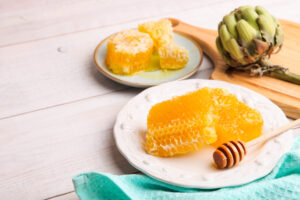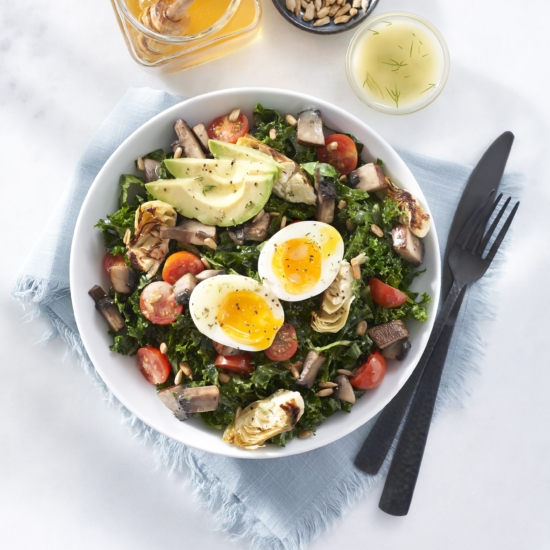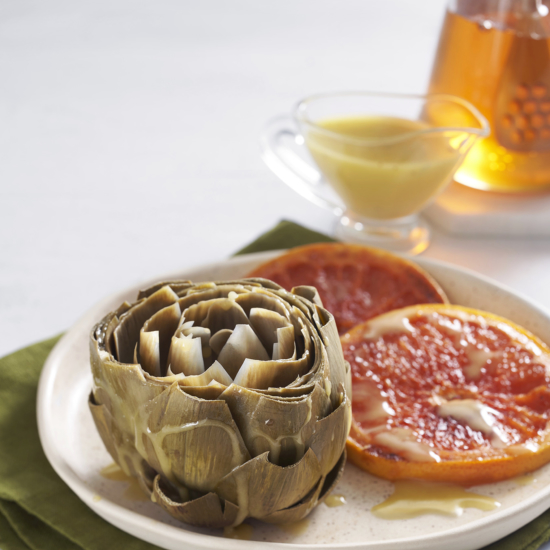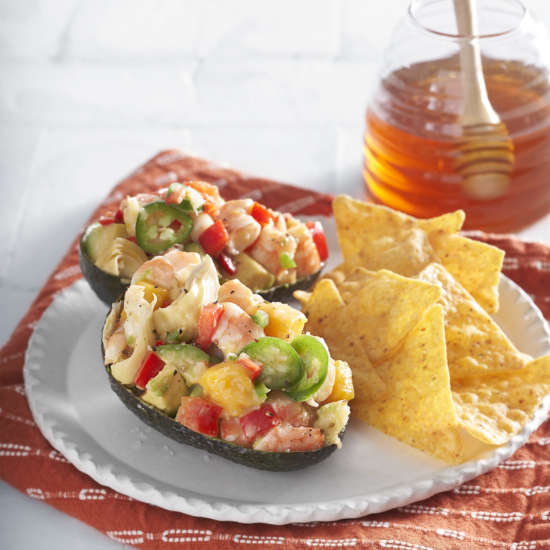
It’s a phrase that many of us are familiar with – “Okie dokie, artichokie” – but despite what its casual tone may suggest, artichokes are so much more than just “okay.” In fact, this meaty vegetable – which, fun fact, is actually the bud of a flower that when left unharvested blooms into a beautiful thistle that provides nectar and pollen for honey bees and other pollinators – is a great option if you’re looking for a low-fat and low-calorie source of nutrients. Join us as we dive into the benefits of artichokes and share a few of our favorite honey + artichoke dishes.
When looking at the nutritional breakdown of artichokes, it appears that they could be considered the king of the garden. Clocking in at just 76 calories, 17 grams of carbohydrates, and zero cholesterol and fat1, this unblossomed flower packs a real punch – just check out the nutritional content of 1 large artichoke (162 g):




